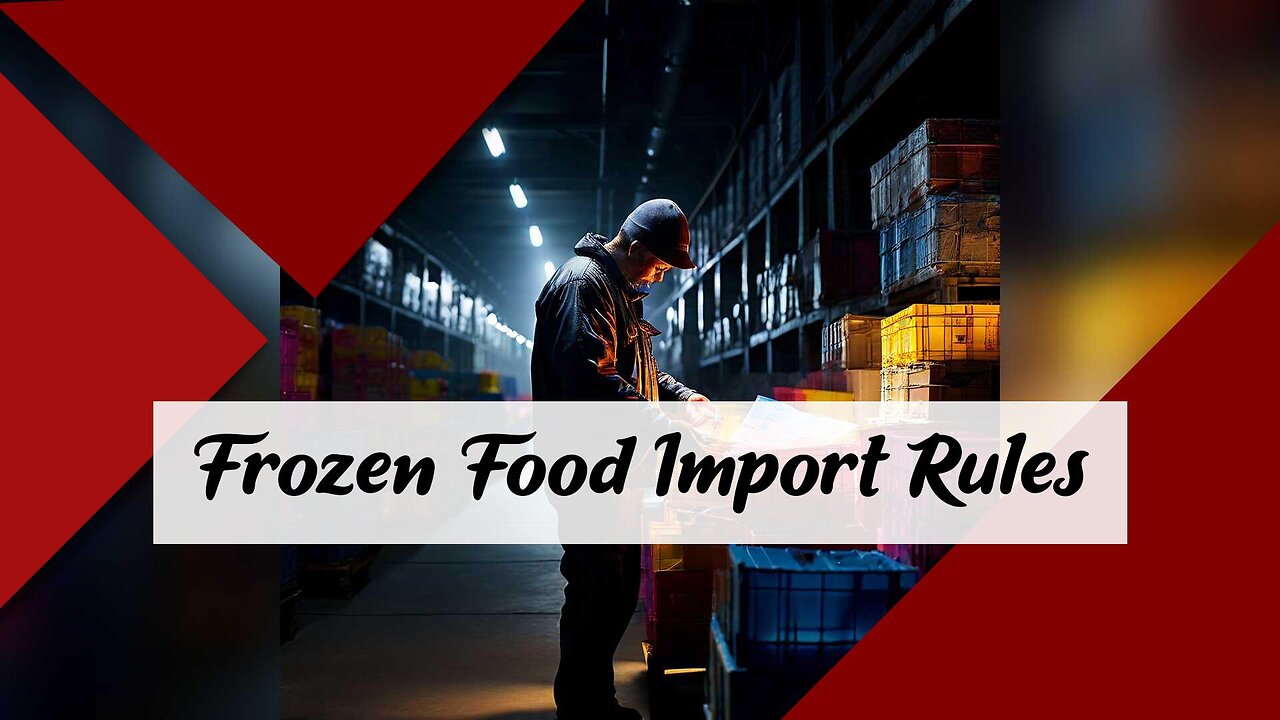Premium Only Content

Navigating Frozen Food Product Importation: Key Steps and Regulations
ISF Solution | (832-904-9333)
clearance@isfsolution.com | www.isfsolution.com
Importing frozen food products requires adherence to specific regulations and standards to ensure consumer safety and product integrity. Key regulatory agencies such as the FDA and USDA enforce these regulations, inspecting and monitoring various aspects of frozen food imports. To navigate the import process smoothly, it is recommended to work with a customs broker who specializes in food-related imports and can assist with the required documentation, including commercial invoices, packing lists, and certificates of origin. Maintaining the cold chain throughout transportation and storage is crucial to preserving the quality and safety of frozen food products. Imported products may also be subject to testing and sampling to ensure compliance with microbiological and chemical standards. Proper labeling and packaging, including accurate product information and handling instructions, are essential for compliance. A customs bond and Importer Security Filing are necessary for financial guarantee and cargo information submission. Choosing the right transportation mode, such as temperature-controlled trucks or containers, is crucial to protect the frozen goods during transportation. By understanding and adhering to these requirements, importers can successfully bring frozen food products into the market while ensuring compliance and consumer safety.
#usimportbond #isfcustomsbroker #uscustomsclearing #isfentry
Video Disclaimer Here: For educational purposes - No affiliation with US government sectors.
-
 1:41:41
1:41:41
The Quartering
6 hours agoTrump's New IVF Order, GameStop CEO Denounces Wokeness Amid Sale, and Elon Musk's DOGE Role Revealed
78.9K37 -
 LIVE
LIVE
Dr Disrespect
5 hours ago🔴LIVE - DR DISRESPECT - TARKOV - ZERO TO HERO PISTOL ONLY
2,829 watching -
 LIVE
LIVE
Film Threat
6 hours agoCRISIS ON MULTIPLE MARVEL MOVIES! | Hollywood on the Rocks
115 watching -
 49:19
49:19
Miss Understood With Rachel Uchitel
1 day agoKris Krohn: The Real Estate Playbook for Financial Freedom
31.6K2 -
 15:24
15:24
Bearing
7 hours ago"N*ZI GERMANY HAD TOO MUCH FREE SPEECH" - Brain Dead CBS Anchor Gets SCHOOLED 😂
4.3K29 -
 23:18
23:18
Crowder Bits
9 hours agoDebunked: John Oliver's Outrageous Lies About Trump 2.0
107K46 -
 1:59:18
1:59:18
Russell Brand
5 hours agoThe Battle for Truth: Gregg Hurwitz on Myth, Power & Cultural Control – SF540
146K57 -
 2:00:46
2:00:46
Steven Crowder
8 hours agoFight! Major Lawsuit Announcement...
589K335 -
 19:50
19:50
Clownfish TV
17 hours agoFacebook FIRED 'Underperforming' Employees and They're P*SSED!
29.9K13 -
 8:34
8:34
Dr. Nick Zyrowski
27 days agoWhat Happens If You Take High Dose NAC ( N-Acetyl Cysteine) For 14 Days
42.3K14